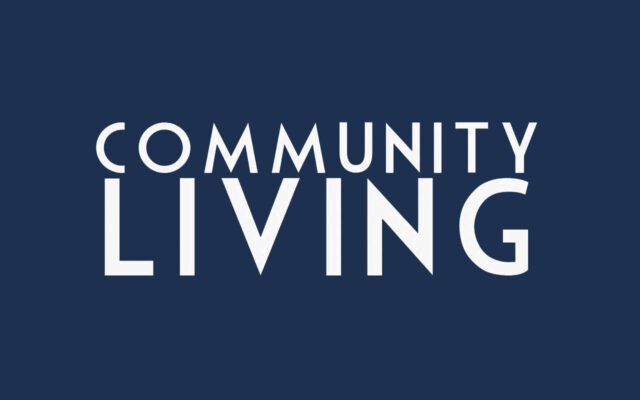House rules, taboo, a lack of support or money, and overprotective carers are among the many issues that prevent people with learning disabilities from forming and maintaining intimate relationships. A group of researchers, including Agnes Turnpenny, looked into this.
Key messages
l Institutional barriers and attitudes prevent many people with learning disabilities from exercising and enjoying their fundamental human right to intimate relationships
l Commissioners, care managers, providers and families need to understand how to support people with learning disabilities to achieve their aspirations and start and stay in a relationship
l People with learning disabilities need to know and understand their rights around intimate relationships.
Background
People with learning disabilities want to develop and sustain intimate relationships – romantic and sexual – like everyone else, but often face barriers to exercising this fundamental human right.
Existing research shows that relationships, including positive, intimate relationships, are good for us, and that social isolation and loneliness, often experienced when people lack such relationships, are bad for us.
The right to a relationship: addressing the barriers that people with learning disabilities face in developing and sustaining intimate and sexual relationships
Researchers Pam Bebbington, Jackie Scarrott, Dawn Wiltshire (self-advocates);Lisa Davidson and Jess Tilling (supporters) from My Life My Choice (www.mylifemychoice.org.uk); Vicky Mason-Angelow, Agnes Turnpenny and Anna Marriott (co-researchers) from the National Development Team for Inclusion.
Aims The study aimed to find out about the barriers resulting from the way support services are commissioned and delivered that prevent people with learning disabilities from having intimate relationships, how common they are and what needs to happen to promote supportive practices.
Methods Data was collected in Oxfordshire between May 2018 and January 2019 using: focus groups with 53 people with learning disabilities; interviews with seven people with learning disabilities; an online survey with 87 respondents – 40 people with learning disabilities, 17 family carers, 22 support staff and eight commissioners; and interviews with three local authority managers and two service providers.
Read the report The Right to a Relationship: Addressing the Barriers that People with Learning Disabilities Face in Developing and Sustaining Intimate and Sexual Relationships. National Development Team for Inclusion. The full report and an easy read version plus further resources are at www.ndti.org.uk/resources/publications/the-right-to-a-relationship
Findings
Our research found that people with learning disabilities experience many barriers to developing and sustaining intimate relationships.
Sometimes this happens on purpose but sometimes it is not intended. We identified many reasons for this:
- Rules on what is and is not allowed. Not all services have clear policies about how to support people’s relationships and, even if they do, these are rarely written with people with learning disabilities
- People have few opportunities to meet potential partners. Clubs and social events are organised by and for those with learning disabilities, but they often lack the support to get to them
- Those already in a relationship often lack support to go out, go on dates or visit girlfriends/boyfriends
- People with learning disabilities are sometimes not treated as adults who have the right to relationships by people around them; sexuality is still taboo and many staff and parents are overprotective
- Lack of knowledge and skills. Some services do not give staff training on how to support people regarding intimate relationships
- People with learning disabilities have limited knowledge about sexuality and keeping safe. Although accessible resources and services exist, providers, families and people with learning disabilities are often not aware of them
- Unsupportive friends and housemates can make it difficult for people to be in a relationship
- Lack of money and transport to go out, visit partners and go on dates
- Commissioners and care managers do not see intimate relationships as a priority unless there are concerns about risks and safeguarding.
We also found things that helped people to be in an intimate relationship:
- Being recognised and respected as adults with rights like everyone else
- Having supportive social and community networks – family, staff, advocates and friends
- Having knowledge about relationships and sexuality and the confidence to meet new people
- Having a life with lots of opportunities to meet people and form relationships.
Sometimes providers struggle with supporting people to have intimate and sexual relationships because:
- Austerity and cuts to services mean people do not get the support they need
- The difference between a bad decision or mistake and risky behaviour is not always clear. Providers have a duty to protect people from harm and worry about getting this right
- Care providers and staff do not fully understand the law on capacity and consent, and want to avoid taking risks.
Recommendations
- Based on the research, we put together some recommendations and identified areas for future activities and research:
- People need to know and understand their rights. They also need to learn what to do when providers or carers say they are not allowed to do something that, in fact, they are
- Adults of any age should have access to sex education and relationship training. Schools and colleges should also do more on sex and relationship education.
- Intimate relationships should be clearly addressed in person-centred support plans, be part of individual outcomes and reviewed regularly. This would also help make sure that enough funding and support are available
- Intimate relationships should also be included in education, health and care plans to help young people prepare for what they aspire to in the future
- Sexual health and family planning services should be accessible for people with learning disabilities and offer information they can understand
- Providers and staff need to take the time to get to know people and build trust. This can help with potentially sensitive and personal conversations about relationships
- Staff should have regular training in supporting people with intimate relationships. There should be a network to help to co-produce, organise and deliver this training and allow good practice to be shared
- Getting the right staff with the right attitude is important. Supporting relationships should be seen as part of a support worker’s role
- There should be a more coordinated approach in supporting couples to ensure the support provided meets their needs both as individuals and as a couple
- Local offers should be extended to personal and intimate relationships and refer people with learning disabilities, families and services to social events, activities and organisations, such as clubs or dating agencies. This would also highlight where gaps are and help local authorities and other bodies to target funding and activities.
The researchers are working with the Tizard Centre at the University of Kent and Mencap to develop a charter about people with learning disabilities’ rights to sexual relationships.
The research was funded by Disability Research on Independent Living and Learning (DRILL)



